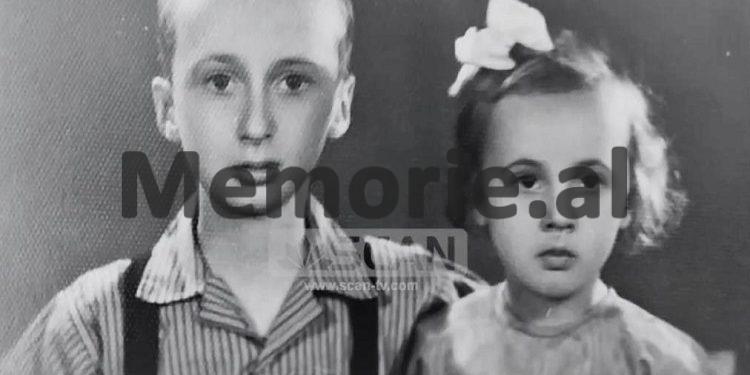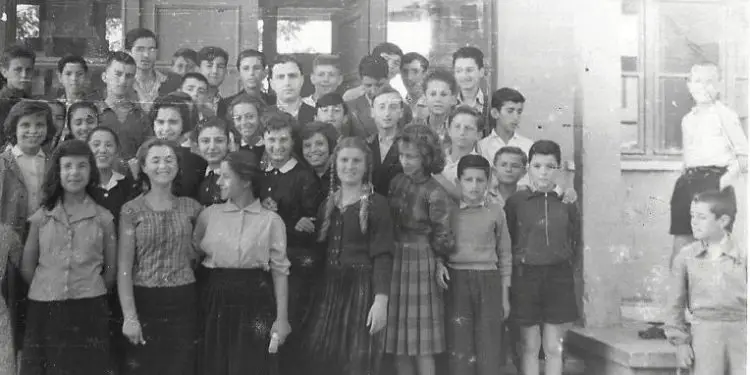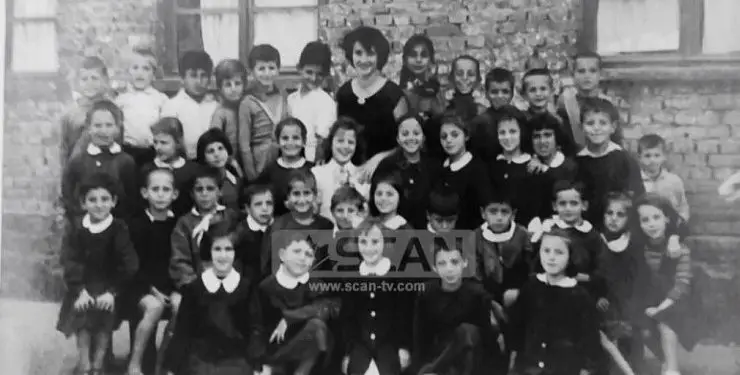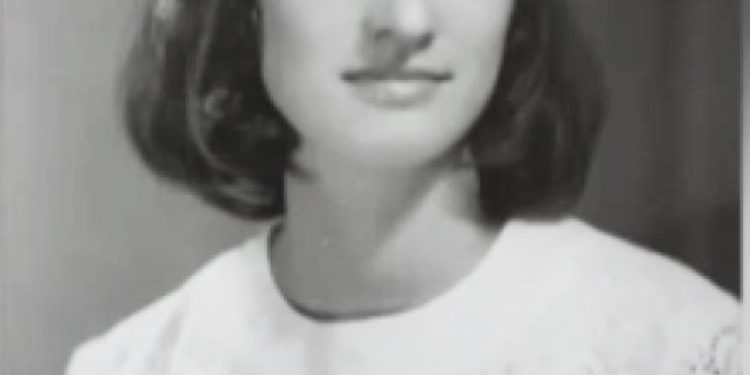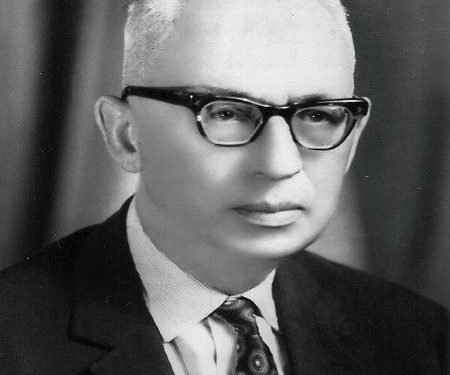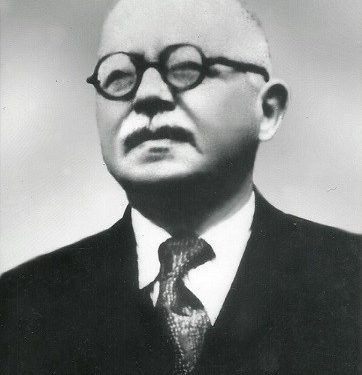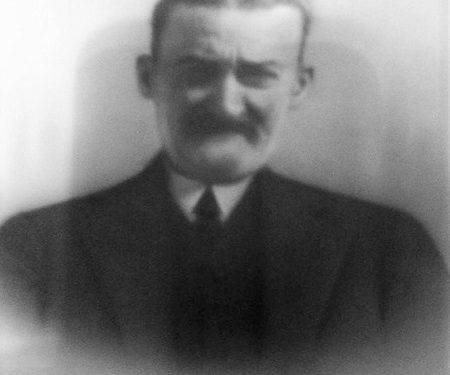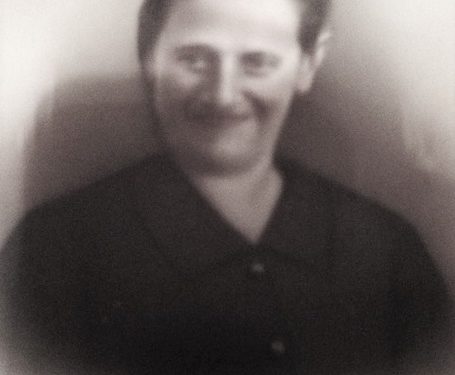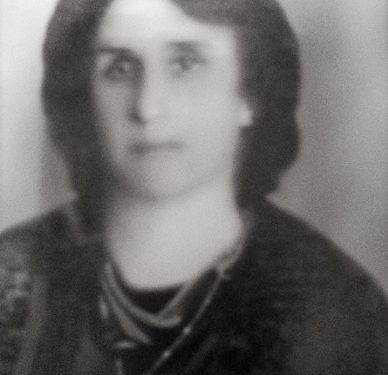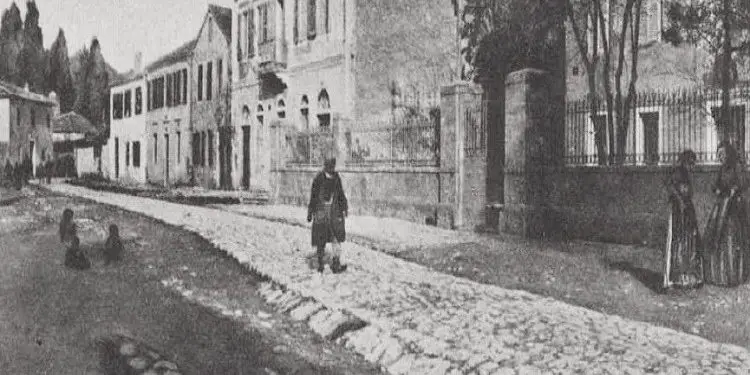By Dashnor Kaloçi
The first part
Memorie.al / Born and raised in a family with intellectual and aristocratic traditions, both from her father’s side (originating from Narta and Vlora), and from her mother (from the city of Durrës), even from four generations of graduated from the most popular universities in Europe, in various branches such as; Law, Economics and Medicine, even the older brother, (one of the icons of Albanian Medicine, for almost half a century), could not “deviate” from the family gene and the path that their forefathers had chosen and traveled, in the current of life. In fact, since she has gone a little further, since in addition to teaching as a lecturer, she has also engaged in active politics, being elected not only as a member of the Albanian Parliament, but also as the vice-president of the Parliament, although for a short time, as long as it lasted that legislature. Taking into account the branch where he graduated and the profession of university lecturer, which he practiced until he retired, and also his brother, who specialized in one of the best university clinics in Paris, at the beginning of the 70s not only has life not “petted” her, but it has also brought her a lot of vicissitudes in her journey and professional career. Due to the class struggle, the Party Committee of Region No. 1 of Tirana, labeled her as: “The daughter of a bourgeois lawyer, who studied in Switzerland before the liberation and she is not worthy to study…” which deprived her of the branch she had chosen to follow. All these already belong to a past time, but due to our continuous requests, Prof. Dr. Margarita Qirko, are “forced” to break the “code of silence” that she has meticulously implemented until today, not remembering those past times, and speaking for the first time, for Memorie.al, in an interview, about the history of the family, and hers.
Ms. Margarita, thanking you for accepting this interview for Memorie. al, let’s start with your childhood, when and where were you born?
I was born on December 8, 1952, in the city of Vlora, on a cold but sunny winter day. Now that I am telling my life, the cold winter day means, that life would not be easy, but its sunset, would be with light, as the sun of that day, would end my life peacefully in soul.
How do you remember your childhood, parents, grandparents and their family origins?
I was born into an intellectual family, educated for several generations abroad. My grandfather Athanas Qirko was from Narta in Vlora and after graduating from the “Zosimea” high school in Ioannina, he continued to the Faculty of Medicine in Athens, where he graduated with high results. In 1900, he started working in Vlora as a pediatrician, but he also performed well as a general practitioner. He was respected and honored throughout the province of Vlora, for his skill, dedication to patients, kindness and love he gave in treating them. When Athanasius died, all the people of Vlora took part in his burial, and they even carried his coffin in their arms until the Narta cemetery.
And your father, where did he study?
My father, Telemak Qirko, was a lawyer; he graduated from the University of Lausanne in Switzerland in Law and Economic Sciences in 1935. He was the closest childhood friend, as he contributed to my education with books every day. Every evening before dinner, I sat next to him and listened for half an hour to the translation into Albanian from Italian of the book ‘Pinocchio’, where the educational purpose was that; father never lies. This is how my path to later learning the Italian language began. After finishing ‘Pinocchio’, he continued every dinner with other books such as: ‘The Heart’ of Edmondo De Amicis’, ‘The Adventures of Cipollino’, etc. Every week, we went together to the bookstore that was located somewhere where the National History Museum is today and asked about the new books that had come out for children. He always chose the most educational ones. On Saturdays at dinner, together with my brother, Spiron, education was done with operatic music from the radio, listening to the Italian station, L’Invito a L’Opera, where the greatest Italian singers, who were also world famous, sang .
Who do you remember from those famous singers?
I have heard since I was little, the divine voice of Maria Callas, Renata Tebaldi, Mario Del Monaco, Giusepe di Stefano, Tito Gobi, etc. My brother, Spiro, and I were introduced to the libretto by our father and then we listened to the performance of the opera by the above singers. Throughout my childhood and until 1967, when the Opera was closed by the communist system, I did not miss any show, including that one.
Which of those shows has remained in your memory and who do you remember from the Albanian artists who performed at the Opera Theater at that time?
I remember like now; “Traviata”, with Marie Kraja and Nina Mula, “Madam Baterflai”, with Gjusepina Kosturi, “Bohema”, with Kristaq Paspal, “Peshkatar e Lalave”, skillfully sung by Gaqo Çako, “Arien e Nadirit”, the operetta “Princesha of Čardash”, by Imre Kalman, sung and performed quite beautifully by Luiza Papa and Gjoni Athanasi, “Dasma e Figaro”, with great success by Rozmari Jorganxhi, and with the latter, the opera closed.
And then, when it reopened, did you continue to attend performances at the Opera?
Later, when it reopened, I continued attending opera performances, where the stars of the Albanian opera scene performed, such as; Edit Mihali, Gaqo Çako, Tatjana Kora, Inva Mula, Marjana Leka, etc.
Let’s go back to your grandparents, at what age were you aware of their past, so when did you learn that they were intellectuals and why not, an aristocratic family?
Before I entered the first grade, in the days approaching the beginning of the school year, my father sat me in the chair next to him and explained to me the history of our family, thinking that he was talking to someone his own age. He showed the intellectual origins of the family, from his grandfather Athanas Qirko, which I elaborated a little above, and continued with his life, who had studied abroad for 18 years. He had completed only 4 primary classes in Vlora and then, at the age of 10, his father sent him to Italy, to Bari, where he completed his 8-year-old and high school in Florence, with a separate cultural formation in the field of operatic music, painting, sculpture, literature, philosophy, history, etc. And all this, thanks to the special place of the Italian Renaissance, such as Florence, and also to the extraordinary professors in the field of knowledge, who taught in those schools and universities. After finishing high school in Florence, he enrolled in the Faculty of Law in Lausanne, Switzerland, where he completed two Faculties, that of Law and Economic Sciences. According to him, life in Switzerland belonged to another planet.
After graduation, where did your father Telemak Qirko start working, did he return to Albania with his family, or did he stay abroad?
After finishing the university with very good results and for his achievements, the father started working in Geneva, at the League of Nations, where he worked for 1 year. At this time, my grandfather Athanasi, a doctor in Vlora, told him to quit his job and return to his homeland, since he was already fully formed, to contribute to his country. Thus, after 18 years of education abroad, father Telemachus returned to his homeland and this is where the difficult story of the life of that man, extremely knowledgeable and very honest, began.
Did your father tell you about the origin and history of your mother’s family?
Yes, definitely, at that time, my father also told me about my mother’s background, who came from a family of manufacturing merchants for generations, in Durrës, where my maternal grandfather, Spiro Leka, who traded with Trieste and Milan, had Franciscan school and knew 4 foreign languages. While the maternal grandmother, who led a family from Berat with the surname Kona, was the granddaughter of a doctor who had studied in Florence, the daughter of a lawyer and the sister of a doctor, all of whom graduated from university abroad.
So four generations of intellectuals, all studied abroad?
Yes indeed, four generations all with studies abroad. I remember that when my father told me, I listened with wide eyes and with a childlike worry. “In the regime we live in,” continued the father, “people like our family do not belong to the ruling class and we are seen as enemies of the class, since ‘our fault’ is the intellectual family we come from.”
Wasn’t the father afraid to have those conversations with you since you could talk to your friends?!
I wanted to explain this to them, since my father, when he was telling me those things, said more or less these words, which I am trying to reproduce: “I told you this, my daughter, because in a few days, you will start school, so you will touch the cold shore of the sea of your life and you will never be surprised, with any behavior that is not suitable for you, since it belongs to the origin from which it comes. This should not kill your innocent soul, but you should expect it with coolness, knowing the reality beforehand, since the truth helps you not to make mistakes. You will have your friends, with whom you feel good and you will stay with them, giving love in your free time. Your life, apart from good friends, will be dominated by continued study, to absorb as deeply as possible, the knowledge gained at school and filled with extracurricular books, which we will choose together at the Boulevard bookstore. I will be your best friend, for opera, cinema, theater, walks and discussions of problems that will arise”. This was more or less what my father told me, from that small age, when I would sit for the first time in the school pews.
How did you answer, do you remember?
I was shocked, but also relieved by this honest conversation with a man who, even though he was that age, sat down and treated me as a friend and with a divine calmness, told me about my life, which was to come afterwards. The honest and friendly conversation for me was blind faith in him and re-dimensioning of my fragile being, after the very special conversation, which only a rare educator, even a psychologist, can do. This conversation greatly advanced me in years of my mind, although I was just knocking on the first grade. So I told them this, for here begins the story of my life, not as an ordinary child, but with a grown-up mind for the years I carried on my shoulders, to err as little as possible, in the life that was just knocking at me.
Where did your mother study?
My mother graduated from the American school of Dakos, with director Parashqevi Qiriazi, who graduated from “Robert College” in Istanbul, she was the sister of Sevasti Qirjazi, and the respect and consideration for them has been peculiar to my mother. The mother was very noble and with an unusual simplicity from the origin she came from.
As far as we know and have read, the Leka family from Durrës, in addition to being an intellectual family, was also rich?
It is true that my mother’s Leka family was rich. At the age of 26, in 1945, she handed over her house, where she lived in Durrës, to the state, waxing with her own hand, in front of the police, all the rooms full of loot and left with the clothes on her body. I never heard resentment from her, about what had passed and about the times that had come. She was very demanding of me, in the perfect human education that I should have and in the maximum acquisition of knowledge at school. This was the happiness of her life, which somehow paled the hard times. In our family, harmony between parents in our education was always present.
Where did you go to primary school and how do you remember that time?
I went to primary school at “10 Korriku” near my house in Tirana. When I started first grade, my mother taught me to schedule study time, leaving more time for difficult subjects. This planning of time every day became a necessity throughout my life. She checked every night the assimilation of my lessons, while my father was regular in the meeting with the parents at school. Every summer, after the end of the school year, the programming of the books that I would read during this period was made, where the choice was made in collaboration with my mother. During this entire period, before entering the gymnasium, I read many books, one of which is still imprinted in my mind today; it is “Eugene Grande” by the great Balzac. I was drawn to the kindness of this woman who helped people in need. “Kindness in relationships with people is the definition of the beauty of life for me.” Victor Hugo’s “Cosette” introduced me to the human malice expressed by Mrs. Ternadier towards the innocent girl. Hygoi himself has wonderfully defined human wickedness, saying: “The night is nothing else, only the night of the world, wickedness, is the night of the soul.” I continued with “The Count of Monte Cristo”, “10 Novels” by Chekhov, “A Farewell to Arms”, “The Three Friends”, “The Monastery of Parma”, “An American Tragedy”, “The Forsyth Saga”, etc., etc. In all these books, I met characters, whom I had never met in life, but I learned a lot from their lives, accumulating an experience, just started for life. With these newly familiar characters, I knocked on the doors of the gymnasium.
Where did you finish high school?
I started high school at the “Qemal Stafa” school in Tirana. Now I felt myself more formed and I had to choose the profession of my life. The class I enrolled in had very good students and excellent teachers. The most beautiful class for me was the Anatomy class, maybe the genius from my grandfather and my brother, who was studying Medicine, awakened in me the hidden but very strong love to become a pediatrician, as I loved children very much small ones. I studied Anatomy with great passion and in the afternoon, I asked my brother, Spiro, about the topic I had tomorrow, with the aim of filling it in with other details that the school book did not have. A very organic connection was created with the Anatomy teacher, so that several times, she would give me the topic in advance, for the next lesson, and I would prepare it, adding other knowledge, which my brother gave me, and for that lesson, I would replace the teacher to explain the new lesson. My path towards Medicine had started and every day I was sinking into the passion for it and moving forward, adding new knowledge in permanent collaboration with my brother. At the beginning of the fourth year of high school, my mother had a medical problem, so I transferred to “Sami Frashëri” high school, to be closer to home to serve my mother. The class where I graduated was with very talented and very loving students. I had one of the best years of high school.
Who do you remember most from your high school teachers, and who do you remember with respect even after so many years…?
I had teachers who left a lot of impressions on me and the memories left by those honorable teachers, who created a mutual spiritual bond with me, of their respect, love and kindness, in the treatment they gave us students, are eternal. I remember with the greatest respect and that I will never forget in my life, the professor of literature, Rinush Idrizi, who turned the literature class into magic, with his brilliant explanation. When he talked about great literary works and their authors, he penetrated so deeply into the characters that I felt like I was living with them. His explanation had become an art. It was the most beautiful hour for me and this is where my great love for literature began. I worked with the professor to recommend other books, outside of the school curriculum. Among the many different authors he quoted to me was Dostoevsky. I read the book “Crime and Punishment” in one breath and I was amazed by the fact that this author was a genius in the study of the human soul, delving deeply into the divergences that exist between the subconscious and consciousness. Dostoevsky has perfectly described the great contradiction that existed in Roskolnikov, between his subconscious and his consciousness. He can be called the “Michelangelo” of the human spirit, who with his pen “engraved” eternally in literature, the meaning of the human spirit. From this, entire etc., I pray that my professor of literature, Rinush Idrizi, may rest in peace.
With what results did we finish high school and after graduation, where did you want to study, in which branch?
I finished high school with very high results and the matura also excellent, and I was knocking on the door of life, exactly at that time, when the events in my family were gloomy, to have a profession that I wanted.
What problems was your family facing at that time, which made it difficult for them to look for studies, in the branch you preferred?
My brother, Dr. Spiro Qirko, it had been two years since he was removed from Hospital No. 1, where he served passionately as a doctor. His departure was in the framework of the class war, which at that time was extremely aggravated, and that was done by the decision of the Party Committee of Region No. 1 of Tirana.
Where was your father working at the time?
At that time, my father had retired prematurely, since, as is known, the communist state suppressed the Ministry of Justice and closed the lawyer’s office in 1967. Based on this situation where we were, that is, after the departure of my brother Spiros from that country work, “black clouds” had covered my mind, as the desire to get the branch I wanted seemed impossible.
In which branches did you want to study?
After finishing the measured, as was required and was the rule at that time, I presented to the school the relevant documents, with the biography of the family, the measured certificate with the excellent results and the requirements for the branches I wanted to continue; The first was Medicine, the second Industrial Chemistry, and the third; Pharmacy. But the director of the school gave me a recommendation, as an excellent student, who had outstanding skills for Medicine, to ask to study in that branch.
Was that approved, was the recommendation of your school board taken into account, so that you were given the right to study medicine?
Nothing was taken into account, since the consent was given by the chairman of the Democratic Front organization, of the block of buildings in the neighborhood where I lived. They, that is, the leadership of the Front, deleted all my requests and results, not taking them into account at all, with the motive of the class war, saying that: “Margarita Qirko, is the daughter of a bourgeois lawyer, who studied in Switzerland before liberation and it is not worthy, for the presented demands”.
What happened after that that the Front established in your neighborhood?
It happened that when the study rights came out, I saw the posted lists, where I was assigned to the Agronomy branch. It was a punishment that left deep traces in my soul and mind. Memorie.al
The next issue follows




